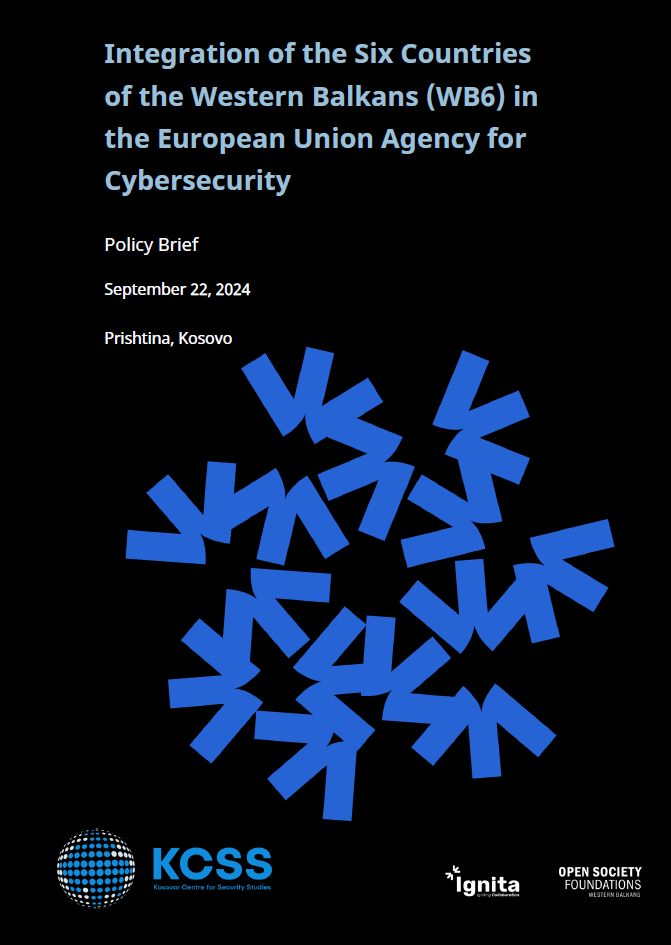24/09/2024

Kosovar Centre for Security Studies (KCSS)
Open Society Foundations—Western Balkans
Qendra Kosovare për Studime të Sigurisë
The six Western Balkans countries (WB6) – Albania, Bosnia and Herzegovina, Kosovo, Montenegro, North Macedonia and Serbia – are implementing their European Union accession reforms in a rather slow pace, with no vision on membership as the endpoint. On EU’s side there lacks consensus among member states on membership of WB6, including because they their publics’ are against further enlargement of the EU and the EU institutional system is inadequate to accommodate more member states into the already hyper-complex decision-making. Whilethis state of affairs is a disincentive for EU accession reforms in WB6 countries, there are efforts to keep this reform process alive.
One such an effort in place for a decade now is the ‘Berlin Process’, a framework established by Germany to support the entire region to prepare for EU membership by promoting political cooperation, economic convergence and institutional reforms. Another approach that is gaining attention – particularly among civil society organisations in the region that are actively supporting the EU integration process – is that of phased accession. This approach would support WB6 countries in attaining EU standards by granting them access to EU mechanisms in specific policy areas in parallel with reforms they implement. This would be implemented in practice by allowing WB6 countries’ institutions and other stakeholders dealing with specific policy areas to engage directly with their peers in the EU in an institutional learning process. EU agencies are typical such mechanisms. They are EU-level institutions specialized in specific policy area that exercise regulatory functions. In this role they drive through expertise –together with the European Commission (which also conducts membership negotiations with WB6 countries) – the EU acquis development in their policy areas. They also guide and support implementation and enforcement of the acquis and are involved in overseeing this.
Rule of law as a component of governance that includes several policy areas is a priority pillar for EU accession, and thus also part of the Cluster 1 (on Fundamentals) of EU membership negotiations in the recently introduced ‘enhanced enlargement methodology’. Moreover, for WB6 countries digitalisation is a crosscutting area that is important for both domestic governance and as a priority area in their EU accession reforms, and as such affects all policy areas. An EU agency operating in the nexus between rule of law and digitalisation is the European Agency for Cybersecurity (ENISA). Therefore, establishing cooperation with it, with a view to advancing to some form of membership and then to full membership – in parallel with their advancement of EU accession process to full membership – is critical for the development of WB6 countries’ institutional capacities for cybersecurity. This would also be useful to guide them in implementing EU accession reforms in this area. Thirdly, this would support them in their ongoing efforts to counter cybercrime and cyber incidents.
The policy brief discusses integration of WB6 countries into the EU Agency for Cybersecurity. It consists of three section. The first section provides a background on ENISA, focusing on two aspects: (1) the EU Cybersecurity Act as the acquis act regulating ENISA and cybersecurity as a policy area, and (2) ENISA’s internal organisation and functioning, as well as the European cybersecurity certification framework as the EU-level regulatory mechanism in place for cybersecurity. The second section discusses the area of cybersecurity in each WB6 country, focusing on the state of play with regard to legislation, policies and institutional framework, as well as on key EU-driven reform priorities. The final section puts forward a list of reform priorities that need to be pursued for phased accession of WB6 countries into ENISA.
This report is produced by Kosovar Centre for Security Studies (KCSS) in the framework of the IGNITA initiative, funded by Open Society Foundations—Western Balkans. Views and opinions expressed are those of the author(s) only and do not necessarily reflect those of the Open Society Foundations—Western Balkans.